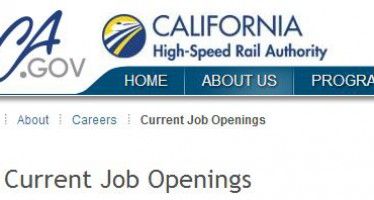Bill would mandate employee poverty data

A bill making its way through the state Legislature seeks to publicly “shame” California businesses that employ a large number of workers who also receive public assistance benefits.

That’s the warning from the California Chamber of Commerce in a press release headlined “CalChamber, State Agency Question Exposing Employers to Public Shame.” Assemblywoman Diane Harkey, R-Dana Point, said the bill’s effect would be akin to pillorying business owners in the stocks.
Assembly Bill 1792 by Assemblyman Jimmy Gomez, D-Los Angeles, would require the California Department of Finance to issue and post online an annual report listing businesses with 25 or more employees enrolled in Medi-Cal, CalFresh or CalWORKS. The report would also calculate the cost to the state of providing benefits for those companies’ employees.
More than half the state on the dole
Twenty-one million Californians receive state public assistance, according to the committee’s legislative analysis of the bill, citing Employment Development Department data. That equates to 55 percent of California’s 38 million residents on the dole.
AB1792 passed the Assembly along party lines on May 28, and the Senate Health Committee on June 25. It’s scheduled to be considered by the Senate Appropriations Committee on Monday.
Gomez argued on the Assembly floor that his bill merely seeks to provide data in order to better inform legislative decision-making.
“Last year we had a major debate when it came to the impact certain business models have on our health care safety net and to our state budget,” he said. “But one of the criticisms I encountered was that our arguments were not based on real data. And the debate often relied too heavily on anecdotal evidence or projections of evidence from other states.
“As public policy makers and as legislators, we have an opportunity to make decisions that impact our economy, our budget and our residents. But we need to base those discussions and decisions not only on personal testimonies or arguments from proponents or opponents of a particular bill, but on data and facts from California. I believe this bill does just that. And it does it in a way that doesn’t raise costs on employers or additional burdens on them.”
Williams: Businesses profit from public assistance
Assemblyman Das Williams, D-Carpinteria, was the only Democrat to speak in favor of the bill. He said it will identify the businesses profiting from the state’s public assistance programs.
“If a business is making profits because they’re pushing benefits onto public assistance and onto the government, it’s something that taxpayers should at least have the right to know who they are indirectly subsidizing with their tax dollars,” he said.
“This is something that we need to be very consistent about. This Legislature has taken a stand against public bodies like community colleges pushing benefits onto the public dole. We should be opposed to businesses doing it as well. At least we should have the right to see when businesses are purposefully reducing hours or pushing benefits onto taxpayers.”
Republican opposition
Several Republicans spoke against the bill, arguing that it would place another burden on the state’s beleaguered businesses.
“These public stockades, so to speak, where we just pillory everybody and make an example of them do lead to more litigation, do lead to more problems,” said Harkey. “And quite honestly, make us very, very more unbusiness-friendly than we are. The governor is trying to recruit business to the state of California. This is no time to put people in a stockade or businesses in a stockade for some kind of exhibition purposes or litigation.
“I … ask for everyone to, please, let’s try to just chill a little bit on our business community, because we cannot afford to be losing small businesses or large businesses out of the state of California. L.A. just had a huge hit between Boeing and Toyota. And there’s more going. These are thousands of jobs. So I respectfully ask for a no vote on anything more that penalizes or makes businesses in the state feel less welcome.”
Shannon Grove, R-Bakersfield, said businesses are already facing an increase in the FICA unemployment insurance tax along with additional costs from the Affordable Care Act.
“I had an employer call my office,” she said. “He has to pay an additional $100,000 a year for this tax on 26 employees. That’s a huge dollar to come up with, especially if you’re a small business. This bill is just another attack on business. And businesses are doing everything they can to try to survive with all of the regulatory issues and all of the new laws that are being passed on them.
“I don’t think we need to keep attacking our employers. They are under so much pressure right now. Why don’t we reward them for providing a job? Why don’t we give them the opportunity to increase the pay on those jobs without sticking them with additional debt?”
Don Wagner, R-Irvine, argued that because the bill applies only to businesses with at least 25 employees receiving public assistance, it would disincentivize some businesses from hiring more employees.
Health Committee debate
The debate before the Senate Health Committee was along similar lines.
Megan Scott, a research and policy analyst at the UC Berkeley Center for Labor Research and Education, argued in favor of collecting and publishing more information.
“As a researcher, I support any and all efforts to collect good quality, publicly accessible data,” she said. “When it comes to state-funded benefit programs, the state has a compelling interest to collect this data about program participation and cost, and to make the data available for public review and analysis. This will allow policy makers to better understand the trends in the labor market.
“As the economy recovers post-recession, we are seeing higher rates of job growth in low-wage sectors. And this suggests that a growing number of working families are relying on these public benefit programs to help make ends meet. And therefore we have as a state really a compelling interest to learn more about these trends and how to respond.”
About one-quarter of the workforce has a family member receiving public assistance, said Scott. More than half of fast-food workers nationally and more than a third in California have a family member enrolled in federal benefit programs. More than 250,000 Californians, working in companies with more than 500 employees, are enrolled in Medi-Cal.
“Our research would be even further enhanced if we had access to the data that this bill proposes to collect,” she said. “Right now we have to build our models and our estimates by combining a number of publicly available data sets. But the data that would be collected through this bill and issued as a public report would provide really a much better means to understand some of these trends and dynamics that I’ve talked about.”
Jessica Bartholow, legislative advocate for the Western Center on Law and Poverty, argued that the data will support the effort to further increase the minimum wage. Assembly Bill 10 has raised the minimum wage to $9 an hour, with another increase to $10 an hour taking effect in 2016.
“Even with the changes implemented by AB10, a family of three with a full-time worker will land at 90 percent of the federal poverty line,” Bartholow said. “And here in California we know that that does not go far enough. Raising the wage for low-income workers is the single most effective way to move families with earners out of poverty.
“With regards to public benefits, 11 percent of California’s population receives CalFresh and over 10 million Medi-Cal. And California’s poverty rate is getting worse. While the rest of the country is getting better, California is one of just three states that had an increase in childhood poverty in 2012.
“We join the author and the cosponsors in supporting a robust public benefit program that supports everybody who needs it, and provides enough benefit for people to live healthy lives. But we also don’t think that the public benefit programs should be used to bolster low wages and the companies that pay them. We think that the information that comes from this [bill] will help us build towards a day where low-income workers are not below the poverty line.”
Business opposition
Opposition to the bill came from business groups, arguing that it would lead to misleading information, resulting in bad legislation.
“We oppose the bill not only because it drastically oversimplifies the conversation about how to help the working poor, but also because we believe the information it provides – and the narrow scope of the information it provides – is actually misleading and will be misleading to the public and to policy makers, and could be used to defend bad policy proposals in the future,” said Mira Guertin, policy advocate for the California Chamber of Commerce.
“As the Department of Finance points out in its analysis, where it opposes the measure, the bill suggests that no one with a job should ever need public assistance. And that’s simply not true. There are going to be circumstances, because there are myriad circumstances that cause people to need public assistance, many of which are not dependent at all upon the behavior of the employer.
“The bill also implies that every job in the state of California should provide enough to support a family of any size under all circumstances with one working adult. And we don’t believe that’s a fair assertion to make about every business in the state.”
Nicole Rice, policy director for the California Manufacturers and Technology Association, argued that the bill avoids the issue of how to help businesses provide better paying jobs in California.
“Should the discussion be about the names of companies that are on the list, or should it be about how to create middle class jobs?” she asked. “In the manufacturing community we would state that we are the answer to California’s middle class crisis.
“And that there needs to be discussion about how to expand and grow those opportunities so that individuals will have a place to transition from their entry level jobs into these middle-class opportunities. We’re very concerned that the information contained in this report will not give us enough information to have that very important conversation.”
Gomez: Will paint complicated picture
Gomez acknowledged the criticism, but defended the bill as a step in the right direction.
“They are correct,” he said. “When it comes to taxes, our economy, economic development, the use of our public benefit system, it is complex. And this bill will, I believe, present a report that paints a more complicated picture.”
Gomez noted that Massachusetts provides this information, much to its chagrin.
“Most people would never assume that it was the state of Massachusetts that would have more people on the public assistance rolls than some of the brick-and-mortars,” he said. “And at the same time right now there’s brick-and-mortars that get blamed for every single problem we’re having, while others are just as culpable.
“So this bill is going to paint a picture that I believe will have benefits and negatives for different groups and individuals as well as elected officials who make these decisions.”
Related Articles
Caltrans accused of waste, sloth
March 18, 2010 By ANTHONY PIGNATARO “Caltrans is a good organization with lots of good policies and procedures,” Manas Thananant told
Crazifornia: Three ‘crappy’ regulatory battles
Nov. 30, 2012 By Laer Pearce For a lot of very good reasons, California’s environmental regulators have earned a reputation
How accurate are high-speed rail jobs reports?
How many jobs is the California high-speed rail project creating? As California’s unemployment rate remains above the national number,



